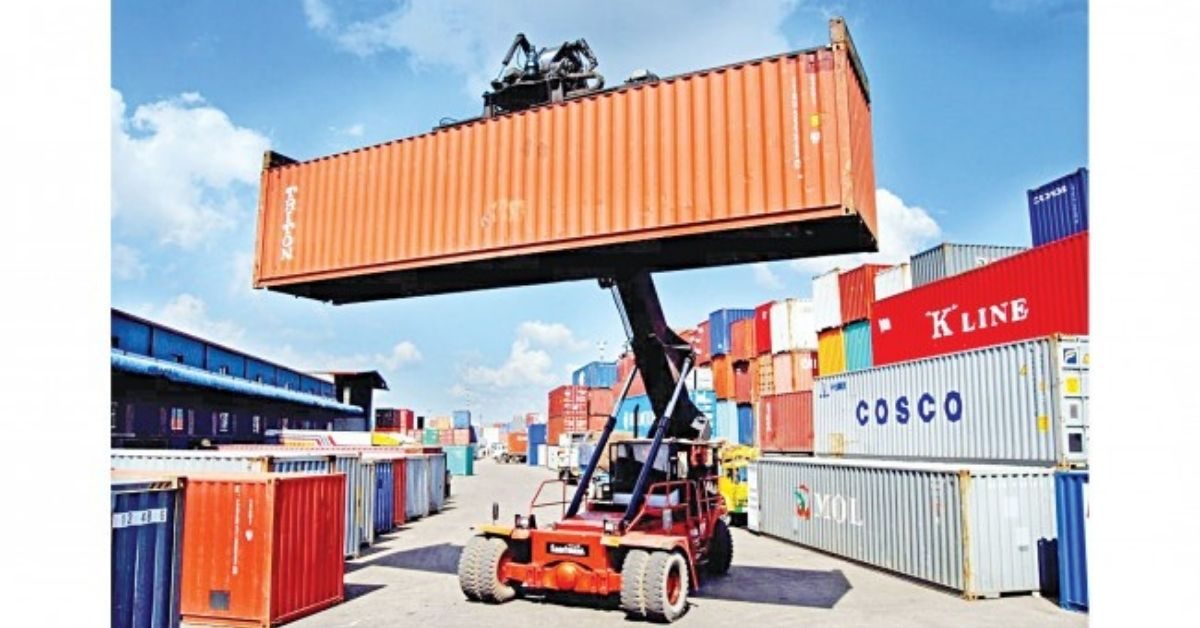Bangladesh’s export is facing unprecedented delays because of the deepening container crisis globally and squeezed capacity in vessels, fuelled by the rebounding demand in the Western economies.
As a result, anxiety has gripped many exporters as they worry about whether they would be able to ship products on time.
Such crisis has been prevailing for the last few weeks as the inland container depots (ICDs) are failing to send the goods to the port due to the acute shortage of containers and delay in getting space in vessels.
Cargoes have piled up in and outside of 19 private ICDs located in and around the port city, and they are overloaded with export cargoes and can’t receive any more goods.
Export goods are usually sent from factories to the ICDs. The cargoes are kept at the container freight stations first as freight forwarders, on behalf of exporters, book space for containers in feeder and mother vessels for the shipment and submit cargo loading plan (CLP) to the ICDs.
The ICDs then send the containers to the port following customs procedures.
Chattogram-based garment exporter Pacific Jeans Ltd sent 27 covered vans loaded with export-bound cargoes to four private ICDs three to four days ago. But the goods are yet to be unloaded due to a space shortage at the ICDs.
Syed M Tanvir, managing director of Pacific Jeans, said that due to the supply chain disruption in the global shipping sector caused by container shortage and congestion in the transhipment ports, export goods were currently reaching the destination countries following a delay of 15 to 30 days.
“The problem has been prevailing for months,” he said, adding that the in shipment might further worsen.
Anjan Shekhar Das, managing director of RSB Industrial Ltd, an activewear exporting firm in Chattogram Export Processing Zone, said five trucks full of goods had been waiting in front of two ICDs for the last three days.
He expressed his concern about whether he would be able to deliver his cargoes to the buyer in Europe.
Md Ruhul Amin Sikder, secretary of the Bangladesh Inland Container Depots Association, said most of the ICDs were overflowed since export cargoes were staying inside the depot for a much longer period than usual as freight forwarders were not providing them with cargo loading plan (CLP) for their failure to book containers.
The shortage of empty containers is not limited to Bangladesh.
Since November last year, the problem has been plaguing the global shipping sector as the supply chain has been disrupted because of the coronavirus pandemic.
Because of the global crisis, export cargoes are staying inside the ICDs for five to eight days against the normal two or three days, Sikder said.
Even if containers are available and cargoes are stuffed into them, the loaded containers are being forced to wait to be shifted to the port due to a delay in getting the nomination of vessels, he said.
Trucks and covered vans carrying cargoes from different parts of the country are also facing delays in unloading them, so they too are waiting in the long queue.
A total of 14,000 TEUs export containers were lying in the ICDs against the capacity of 8,000 TEUs, according to the BICDA. And BICDA Secretary Sikder said they were facing a shortage of 6,000 TEUs empty containers.
Kamrul Islam Mazumder, chief operating officer of Summit Alliance Port Ltd, said more than 2,400 twenty-foot equivalent units (TEUs) of export-bound containers piled up on its ICD as of yesterday against the capacity of 900 TEUs.
“There is a long queue of trucks and covered vans loaded with export cargoes outside their ICD,” he said.
This type of prolonged stay of export cargoes and containers in the ICDs is causing operational hindrance inside the depot, said BICDA President Nurul Qayyum Khan.
“Any delay in these stages has a negative impact on the whole operational dynamics,” said Khan.
Bangladesh Freight Forwarders Association Director Khairul Alam Sujan said export cargoes could not be stuffed into containers on time due to the container crisis. “This is a global crisis.”
Even when containers are available, there is a crisis in ensuring booking containers in the feeder vessels, he said.
Ajmir Hossain Chowdhury, head of operations of Mediterranean Shipping Company Bangladesh, said following the economic rebound in the western countries since November last year, the export from China and other Asian countries had picked up.
This huge volume of containers could not be brought back timely due to the long congestion at the ports of Europe and the US, creating an acute shortage of containers in the exporting countries, he said.
“This has increased container freights. Vessel owners also raised charter hire that forced the feeder vessel operators to reduce their capacity,” said Chowdhury.
Some shipping companies are charging $19,000 for a 40-foot container, way higher than $2,200 before the pandemic, industry people say.
Source : The Daily Star







